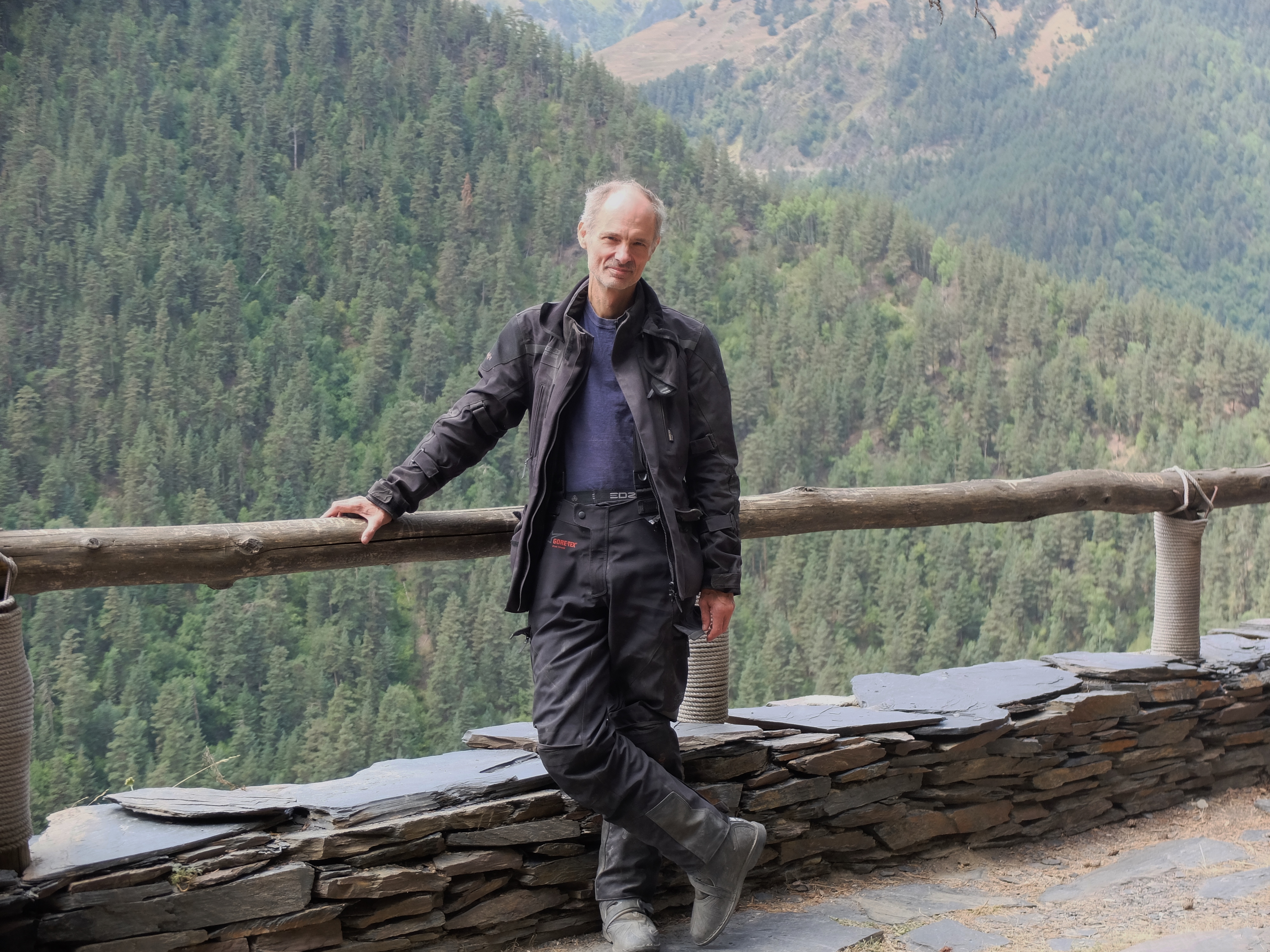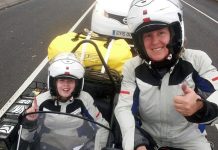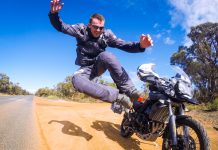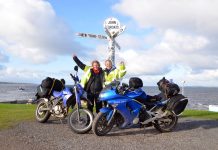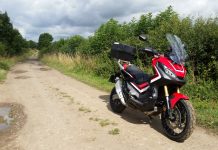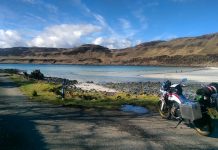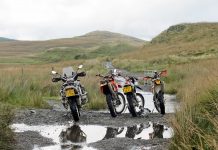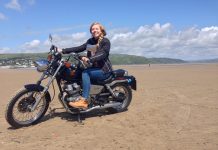Travelling by bike can sometimes be dangerous and confronting. That’s the reality of it. We hear from Richard Field about his time in Turkey during ISIS uprisings…
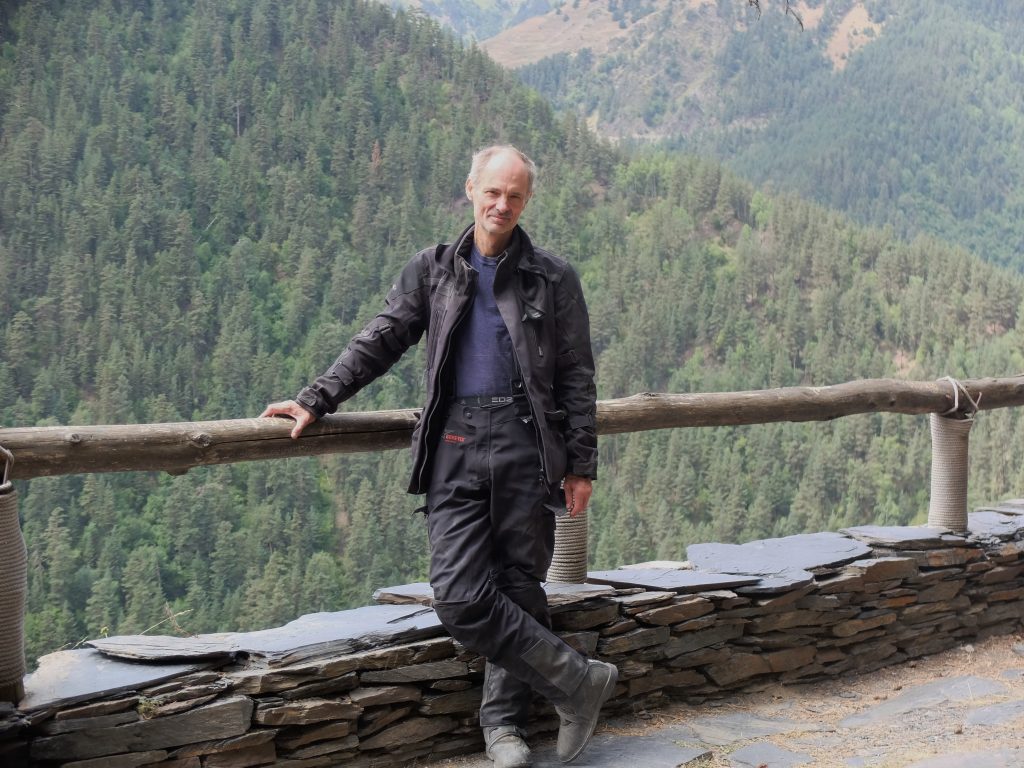 I’d taken a dozen or so short rides on the continent over the years and, after my wife died, two longer group-rides in India. In early 2015, at the age of 63, I set off on my first Big Trip and my first solo journey outside Europe. In many ways it was a new experience. It took me further outside my comfort zone than I’d ever ventured before, and it gave me a much deeper insight into the world around me.
I’d taken a dozen or so short rides on the continent over the years and, after my wife died, two longer group-rides in India. In early 2015, at the age of 63, I set off on my first Big Trip and my first solo journey outside Europe. In many ways it was a new experience. It took me further outside my comfort zone than I’d ever ventured before, and it gave me a much deeper insight into the world around me.
There was no question about how I would travel. I had long ago discovered that how you arrive at a place and how you journey through it has a profound effect on what you experience. Travelling by motorcycle gives you a unique viewpoint. It also allows you an exceptional ease of movement.
Without Felix, my Suzuki DR650, I would never have had the freedom to explore Turkey’s Iraqi/Syrian borderlands. It was along this border, in the town of Şirnak that I sat one surreal evening drinking tea with some new friends on the porch of my hotel. We sat in a haze of silvery light from the headlamps of the huge Tomor water-cannon parked at the head of the street. We were nine: Cȋhan, Seurat and Baran, five more Kurdish men, and me, a lone Englishman, 3,000 miles from home. Felix had recently been lifted onto the porch with us for safety.
Ten minutes earlier, a homemade bomb had bounced off an armoured car and exploded in the road nearby. A unit of armed police appeared and began combing the adjacent streets. The Tomor manoeuvred to bring us more directly into the beam of its headlight. In the narrow, winding streets of the upper town, bombs detonated every few minutes, answered by the telltale rattle of Kalashnikov fire. I relaxed and drank my tea with the others, cocooned in a magic circle of Kurdish defiance.
I hadn’t planned to get stuck in the middle of a civil war. But, as I look back, I realise I hadn’t planned not to either. My initial aim had been to ride through the Balkans, Turkey and the Caucasus, then as far east as I could get before winter came. The Turks I met, though, fired my curiosity, and I’d spent weeks listening to their stories and their concerns. I was mindful, too, of one of the world’s forgotten tragedies, the persecution of the Kurds in the south-east of the country. It seemed inevitable that I would eventually be drawn to the Kurdish homelands, hoping to find someone there, too, who could tell their story.
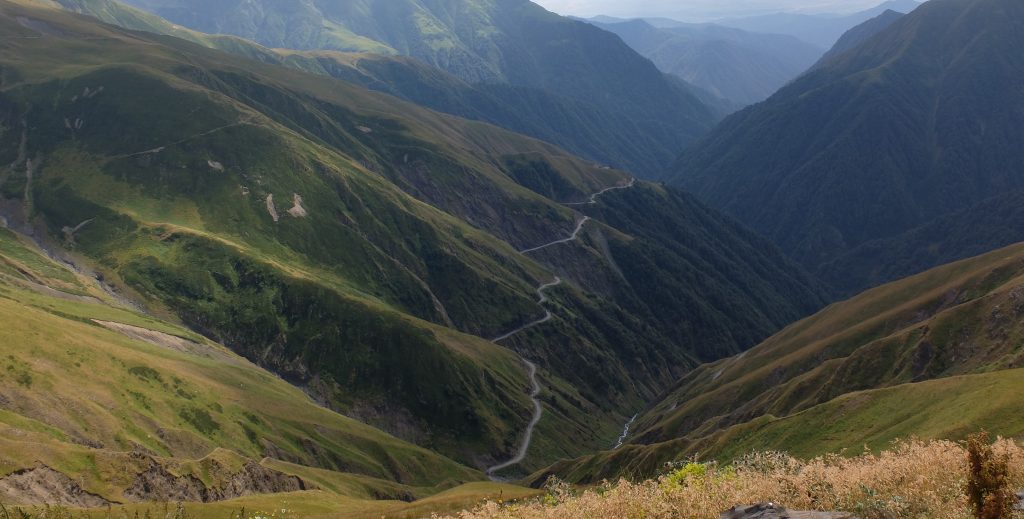
The Kurds, it turned out, had many stories to tell. For nearly a month I stayed and listened, travelling from one impoverished Kurdish town to another. But it was by sheer chance that I arrived at the exact moment the conflict kicked off. “Have you heard about Kobani?” Francesco, an aspiring Italian photojournalist, yelled to me across the courtyard of a hostel in the Arab quarter of Urfa.
It was my first morning in the Turkish/ Syrian borderlands, and I was emerging from my dormitory still half asleep. “ISIS have blown up Kobani,” he shouted. “I’m going down to see. Are you coming?” I shook my head, unsure what to say or even to feel. Kobani lay just over the Syrian border in Kurdish-held Rojava. I had planned to stay there the previous night. On a whim, I’d diverted to Urfa instead. Despite all the chaos and conflict of that time, I rarely felt unsafe. Even in war violence is localised, and Kurds have a profound tradition of hospitality to travellers.
Everywhere I went, individuals quietly appointed themselves my bodyguard or proffered advice and information on how and where I should travel. For the rest, I relied on gut instinct and common sense. When Fuat approached me in Hakkari and asked me to accompany him alone in his van to meet unnamed men on the outskirts of the city, my rule about accepting invitations stalled. I looked into his wild, glittering eyes and recalled the stomach-churning videos he’d shown me, recordings of his time as a Kurdish volunteer fighting ISIS in Syria. I declined his request.
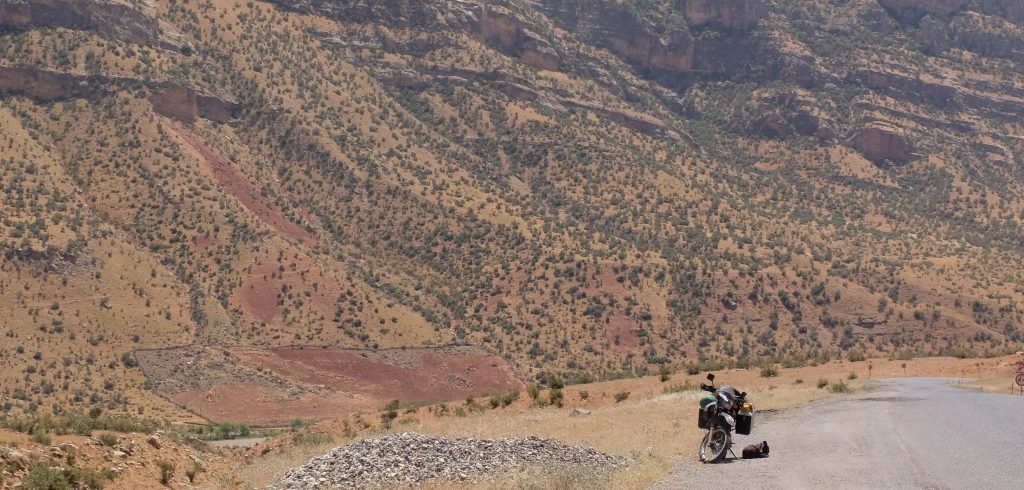
I used to think I was the most unlikely traveller ever, especially on a motorcycle. I have a fear of falling. I’m a hopeless mechanic, and I have four major food allergies and many minor ones. It takes only a moment’s lack of care for me to end up heaving my guts at the side of a Turkish motorway, or to be immobilised for days in a Slovenian hotel or in a plywood cabin high up in the mountain forests of Kafkasor. But all this can be managed.
I carry a medical kit. I ask bilingual waiters to write cards for me in the local language: ‘no dairy products,’ etc. And I have a simple, sturdy bike that any local mechanic can fix.
I learned a lot about myself on this trip. I learned that I wasn’t a headdown, dawn-to-dusk rider aiming for sheer distance. In the course of my nine-month, nineteen-thousand mile journey I averaged less than 80 miles a day. I gave myself permission to linger, taking all the time I needed to fall in love with people and places. I covered less distance than I intended, but I made many good and lasting friends, and I found a new, less urgent way of engaging with the world.
I learned, too, that it really doesn’t take special courage to travel alone. The only courage I found I needed was to get myself over the starting line. After that it was simple. Travelling is just everyday life lived by other means. It’s doing ordinary things, just in different places and with different people. Solo travel demands a greater level of trust and self-reliance, but it brings its own special rewards. When you travel with friends, you take home with you; they wrap you in a bubble of familiarity. On your own nothing diminishes the immediacy of your experience. ‘Home’ is wherever you happen to be. Even today, I feel homesick for Turkey and Georgia.
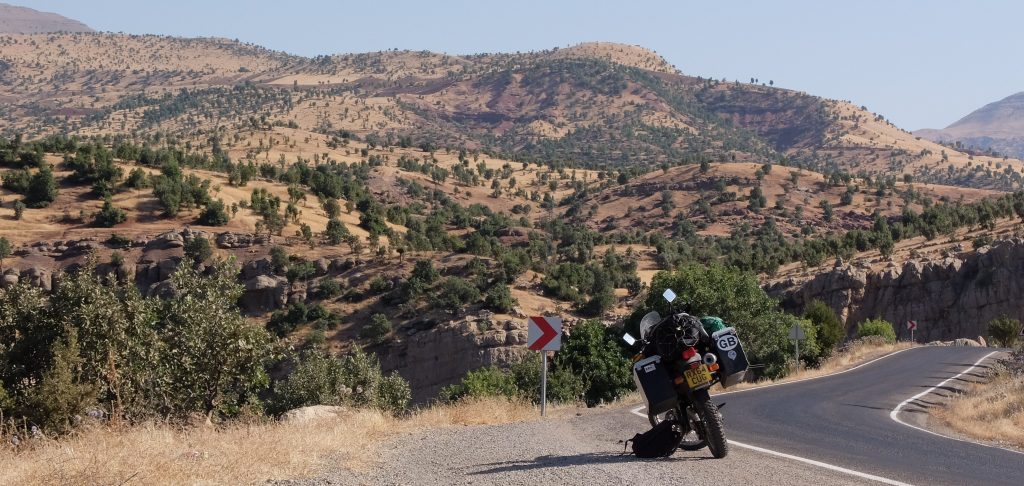
I got out of Şirnak before the artillery arrived and the real fighting began. The town now lies in ruins, a pile of rubble scattered across the bare and beautiful hillsides of south-east Turkey. What buildings survive, including my hotel, have been declared unstable and are being pulled down. I will never forget Şirnak. The days I spent there with its people
deepened my sense of engagement with life and its ever-present undercurrent of tragedy. It also taught me, much to my surprise, that I have an appetite for conflict. That’s quite a discovery to make about yourself at the age of 63.
Slow travel on the DR gave me a window into my own life and into the lives of others. It reorganised the way I saw the world, and it gave me a new sense of possibility. The only insoluble problem of the entire trip was coming home.


